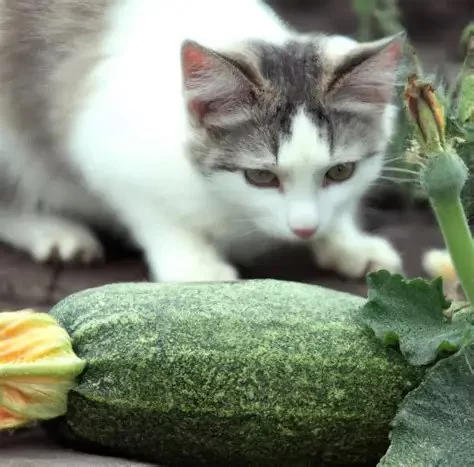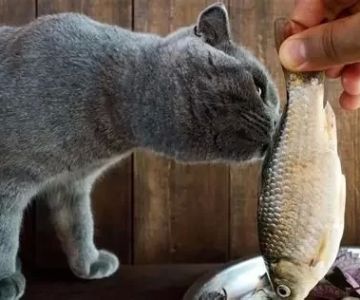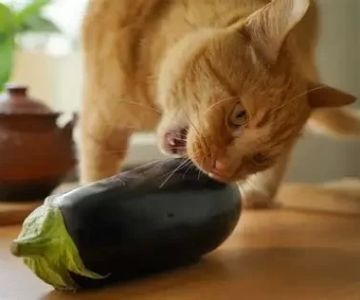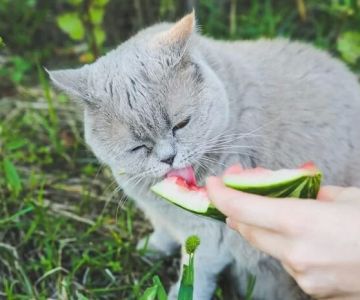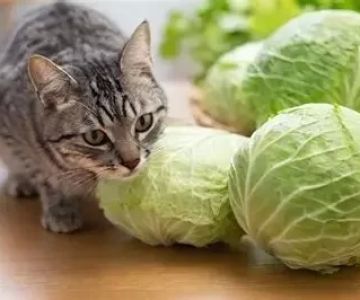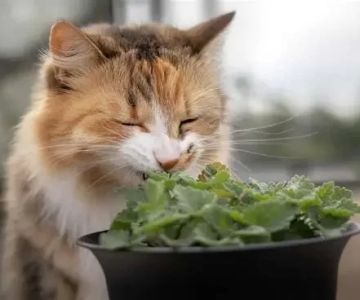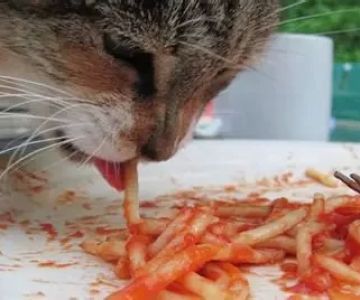- Nutritional Benefits of Zucchini for Cats
- Can Cats Eat Zucchini Safely?
- How to Feed Zucchini to Your Cat
- Potential Side Effects of Zucchini for Cats
- A Real Experience: Cat's First Zucchini
- Veterinary Advice on Feeding Vegetables to Cats
Nutritional Benefits of Zucchini for Cats
Zucchini, a low-calorie vegetable, is rich in essential nutrients like Vitamin C, potassium, and antioxidants. For humans, it's often recommended as a healthy snack or ingredient in various dishes, but can it offer the same benefits for cats?
Though cats are obligate carnivores, meaning they need a meat-based diet to thrive, certain vegetables like zucchini can provide beneficial nutrients in small amounts. It’s a great source of fiber, which can aid digestion and provide hydration. Zucchini is also high in water content, which can help your cat stay hydrated.
Can Cats Eat Zucchini Safely?
Yes, zucchini is generally safe for cats when fed in moderation. Since cats’ digestive systems are designed for processing animal proteins, introducing vegetables into their diet should always be done cautiously. The key here is portion control — small amounts of zucchini will be more beneficial than large servings.
However, not all cats will enjoy zucchini, and some may even dislike the taste or texture. Before incorporating zucchini into your cat’s diet, it’s important to introduce it slowly and observe for any signs of digestive upset. Always remove the seeds and skin, as these can be hard to digest and may cause discomfort.
How to Feed Zucchini to Your Cat
Feeding zucchini to your cat can be simple if done correctly. Here are some tips:
1. Start Small
Start with a tiny piece of cooked zucchini, around the size of a fingernail. Monitor your cat for any signs of discomfort or digestive issues.
2. Cook it
Raw zucchini can be tough for cats to chew and digest. It’s best to steam, bake, or boil zucchini before serving it. This makes it softer and easier on their digestive system.
3. Cut it Into Small Pieces
Make sure to cut the zucchini into small, manageable pieces to avoid choking hazards. You can also mash it for easy consumption.
Potential Side Effects of Zucchini for Cats
While zucchini is generally safe, overfeeding can lead to some side effects:
- Digestive Upset: Too much zucchini may cause mild digestive issues such as diarrhea or stomach discomfort.
- Allergic Reactions: Though rare, some cats may be allergic to zucchini, causing symptoms like vomiting or skin irritation.
- High Fiber: Cats are not used to high-fiber foods, so consuming too much zucchini may interfere with their regular digestion.
If you notice any adverse reactions, stop feeding zucchini immediately and consult with your vet for further advice.
A Real Experience: Cat's First Zucchini
When Sarah, a cat owner from Michigan, first tried feeding her cat, Whiskers, a small piece of zucchini, she wasn’t sure how he would react. Whiskers was quite picky when it came to new foods, so Sarah carefully steamed the zucchini and cut it into small pieces. Surprisingly, Whiskers loved it! After a few days of trial, she noticed that Whiskers seemed to have smoother digestion, though she still kept it to a small portion once or twice a week.
This story illustrates the importance of monitoring your cat’s reaction to new foods. Every cat is different, so it’s essential to introduce vegetables like zucchini gradually to see how your cat responds.
Veterinary Advice on Feeding Vegetables to Cats
When it comes to feeding vegetables like zucchini to your cat, it’s always best to consult with your veterinarian. Cats are obligate carnivores, and while vegetables can provide some nutritional benefits, they should not make up a significant part of their diet. Most of your cat’s nutrition should come from high-quality animal proteins.
Veterinarians generally recommend that vegetables be used as a treat or supplement rather than a regular part of their meals. If your cat has any health issues or specific dietary needs, consult your vet before adding zucchini or any other vegetables to their diet.
In conclusion, while zucchini is not toxic to cats, it should be introduced in moderation. A little zucchini can offer hydration and fiber, but always keep an eye on your cat’s reaction to ensure it’s not causing any adverse effects. For more advice on your cat’s health or nutrition, feel free to visit Hidden Brook Veterinary.

